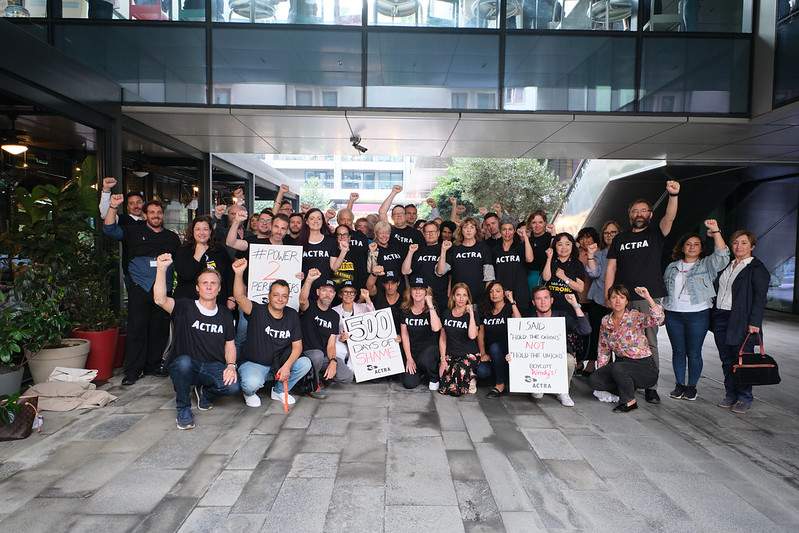The International Arts and Entertainment alliance IAEA (made up of FIA, FIM and UNI-MEI) was represented by its President, John Smith of FIM, at an ILO tripartite Meeting of Experts on non-standard forms of employment. Its recently published conclusions agree to strengthen the ILO’s responses to precarious work.
After the Global Dialogue Forum on the working relationship in the Media and Culture sector held at the ILO headquarters in May 2014, a Committee of Experts representing employers, governments and workers met in Geneva on 16-19 February 2015 to debate how the ILO should respond to the threats to workers’ rights brought about by the expansion of precarious work.
The background document prepared by the ILO shows that precarious work has proliferated in recent years, particularly in lower-skilled occupations, and that women and young workers are disproportionately affected. It also highlights the problems arising from precarious work being an involuntary choice. Europe and the US both have high rates of involuntary part-time work. In the UK, four fifths of all fixed-term workers are either on probation or cannot find a permanent job (over 90% in Greece, Portugal and Spain).
The report shows that precarious work is not a stepping stone to permanent work: temporary workers are more likely to remain precariously employed and are up to ten times more likely to fall into unemployment than permanent workers.
In addition to precariousness, these workers are affected by lower wages, inadequate social security coverage, fewer training opportunities and higher accident rates. They also face difficulties in exercising their rights to freedom of association and collective bargaining.
The meeting’s conclusions recommend that the ILO continue to work to improve data collection and reporting on precarious work. It should also
• Promote the better use of international standards in relation to precarious work
• Analyse where there are gaps in the standards and evaluate the need for new ones
• Examine and address barriers to precarious workers exercising their rights to freedom of association and collective bargaining
• Look at how collective bargaining can contribute to decent working conditions
• Support labour inspection and access by precarious workers to the legal system
• Look at how social security can be extended to precarious workers
• Document trends and create a repository of information on precarious work and innovative practices on how to ensure protection of precarious workers.
Importantly, the conclusions also call for future Meetings of Experts on temporary employment and on discrimination on the basis of employment status, opening up the possibility for future international labour standards to be developed in these two areas.
These recommendations will next be presented to the ILO Governing Body for approval.





